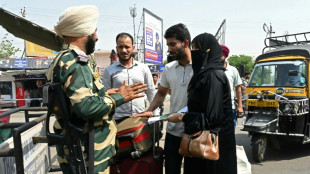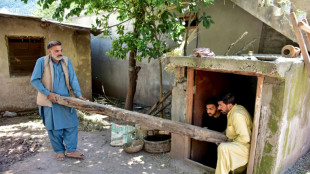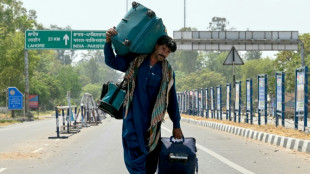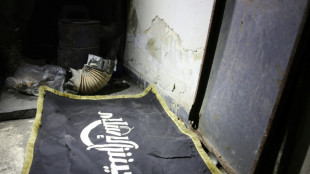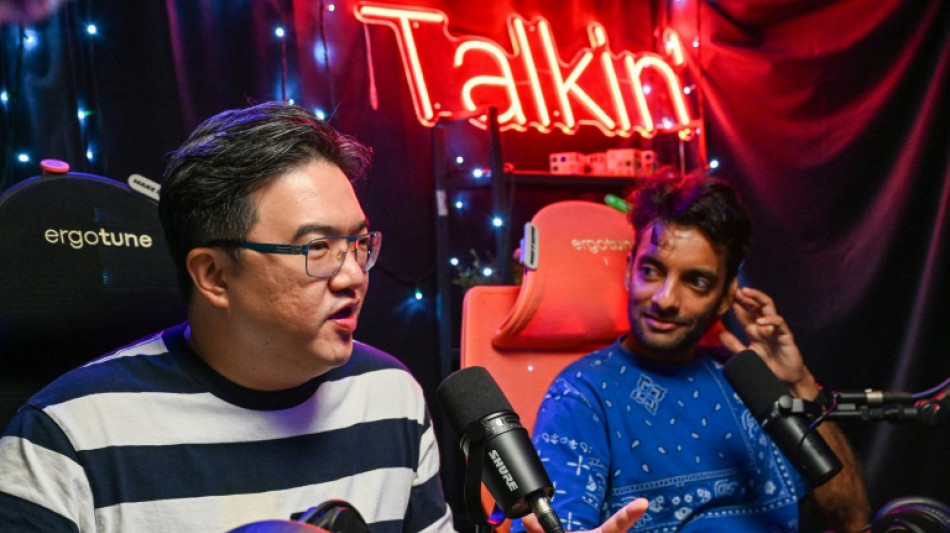

Mic check: Singapore's podcast boom amplifies opposition voices
In a tiny studio, a former Wall Street banker and an ex-aviation executive are doing what critics say is lacking in Singapore's tightly managed media landscape -- giving opposition politicians unfiltered airtime ahead of an upcoming election.
The popular podcast Yah Lah But -- a colloquial Singlish way of saying "Yes, but" -- promises "the most uncensored conversations and interviews from the much-censored country of Singapore", according to its YouTube description.
The show is part of a growing wave of podcasts deep-diving into the affluent city-state's politics, providing alternative coverage of the May 3 polls.
"We're not scared. I think there's a desire to really hear different voices," said host Terence Chia.
Despite its reputation as a modern global hub, Singapore's domestic media is "tightly controlled by the government" and self-censorship is "widespread", said Reporters Without Borders, ranking it 126th out of 180 countries.
Its media landscape is also dominated by players linked to the government that critics say are too pro-establishment.
However, mainstream election coverage of the opposition has improved over the past decade, with its news podcasts showing a willingness to feature alternative voices.
Co-host Haresh Tilani said the independent Yah Lah But will not give their guests a free pass, no matter their party.
"We don't just bash the establishment. We, in fact, challenge them," he told AFP.
Ahead of the election, Yah Lah But has pivoted to political topics and conducted long interviews with politicians from both sides of the aisle, employing a candid tone that allows a peek into their personalities.
"In parliament, rallies, and in mainstream media you see one side of them but podcasts allow you to see the human side of them," Tilani said.
- Mainstream media 'won't engage' -
Singapore's ruling People's Action Party (PAP) has held power since 1959 with an overwhelming majority of parliament seats, and is expected to win the May 3 election.
But the opposition has made gains in recent years, and the election will be seen as a referendum on PAP's popularity under Prime Minister Lawrence Wong when up against a rejuvenated opposition.
Despite podcasts' niche reach, Singapore Democratic Party (SDP) chairman Paul Tambyah said they are "definitely" a better platform than mainstream outlets for non-ruling party players.
"The PAP government has made no secret of the need for agencies... to promote the views of the 'government of the day'," he told AFP.
SDP leader Chee Soon Juan said he has never been invited for a long-form interview by mainstream media in his three decades in politics.
Earlier this month, Chee was on The Daily Ketchup, another breakout podcast, for nearly an hour and a half.
"Ask me the hard-hitting questions, the ones that drill into the issues -- I'm happy to answer. But they (mainstream media) just won't engage in that sense," Chee told AFP.
Legacy media's "biggest problem" is "the government which controls the media", said veteran former editor P.N. Balji.
"Even if the government... opens up, I'm not sure the media knows what to do," Balji said. "They've been used to a certain style of reporting."
Mainstream outletsdid not respond to comment when contacted by AFP.
- 'Pent-up demand' -
With the podcast microphones finally on, the opposition is not wasting time -- and Singaporeans are taking note.
When Workers' Party's rookie candidate Harpreet Singh appeared on Yah Lah But, his hour-plus-long episode racked up almost 100,000 views in two weeks -- huge for a long-form interview in tiny Singapore.
"This is literally the first time I've heard this man speak, but (he) has completely won me over," said one commenter.
SDP leader Chee's episode on The Daily Ketchup got 126,000 views since its mid-April debut -- a reflection of the "pent-up demand" for long interviews with politicians, said co-host Jonathan Chua.
In JanuaryThe Daily Ketchup landed a coup, securing Prime Minister Wong for an interview. It now has 269,000 views.
"The cast members on the show have been upfront on which political parties they are leaning towards... Instead of self-moderating, we cast people with different political views and let them be themselves," Chua told AFP.
Podcasts have "greatly expanded the opposition's access to the public", said Cherian George, a Singapore politics and media expert, adding that their presence also "pressured the mainstream media to take down their pro-establishment bias a notch".
Yah Lah But's hosts believe podcasts will play a larger role in Singapore's political discourse in the future.
"Podcasts are really providing the platform to ask really tough questions that the mainstream media isn't able to ask," Chia said.
M.Marini--GdR
